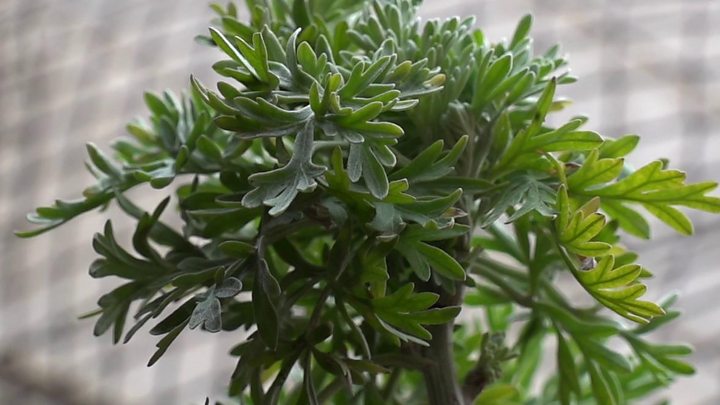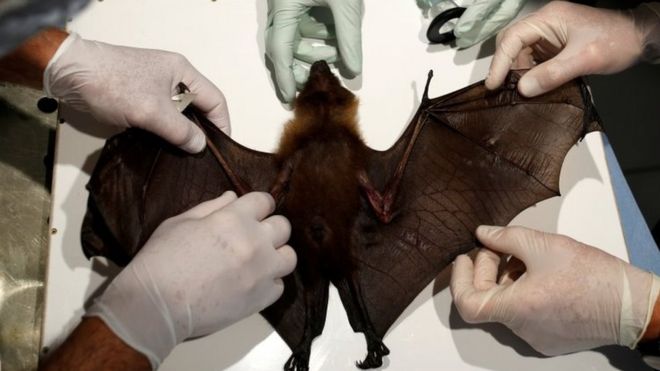Zoonotic diseases - which jump from animals to humans - are increasing and will continue to do so without action to protect wildlife and preserve the environment, UN experts have warned.
They blame the rise in diseases such as Covid-19 on high demand for animal protein, unsustainable agricultural practices and climate change.
Neglected zoonotic diseases kill two million people a year, they say.
Covid-19 is set to cost the global economy $9tn (£7.2tn) over two years.
Ebola, West Nile virus and Sars are also all zoonotic diseases: they started in animals, and made the jump to humans.
What did the report say?
But that jump is not automatic. It is driven, according to the report by the United Nations Environment Programme and the International Livestock Research Institute, by the degradation of our natural environment - for example through land degradation, wildlife exploitation, resource extraction and climate change. This alters the way animals and humans interact.

"In the last century we have seen at least six major outbreaks of novel coronaviruses," said Inger Andersen, under-secretary general and executive director of the UN Environment Programme.
"Over the last two decades and before Covid-19, zoonotic diseases caused economic damage of $100bn (£80bn)."
She said that "two million people in low- and middle-income countries die each year from neglected endemic zoonotic diseases - such as anthrax, bovine tuberculosis and rabies".
"These are often communities with complex development problems, high dependence on livestock and proximity to wildlife."
Meat production, for example, has increased by 260% in the last 50 years, Ms Andersen said.
"We have intensified agriculture, expanded infrastructure and extracted resources at the expense of our wild spaces," she explained.
"Dams, irrigation and factory farms are linked to 25% of infectious diseases in humans. Travel, transport and food supply chains have erased borders and distances. Climate change has contributed to the spread of pathogens."

The report offers governments strategies on how to prevent future outbreaks, such as incentivizing sustainable land management, improving biodiversity and investing in scientific research.
"The science is clear that if we keep exploiting wildlife and destroying our ecosystems, then we can expect to see a steady stream of these diseases jumping from animals to humans in the years ahead," Ms Andersen said.
"To prevent future outbreaks, we must become much more deliberate about protecting our natural environment."
Latest Stories
-
Opoku Agyemang’s private jet use: Be a man of principle and resign – Ntim Fordjour to Ablakwa
18 seconds -
NPP’s Adenta Kumi released from NIB custody
34 minutes -
Surviving and Growing in Turbulent Times: The Strategic Role of Marketing
44 minutes -
McTominay stunner helps Napoli win Serie A title
46 minutes -
360 Africa and Ebenezer SHS unite in Dansoman to promote ‘Renewable Energy for All’
49 minutes -
Old age inspired me to establish a hotel – KSM
52 minutes -
Newsfile to discuss suspended CJ’s legal battle and Accra flood crisis this Saturday
2 hours -
Gifty Anti inspires young women to rise above challenges at TAF College’s 2025 Freelancers launch
2 hours -
Police restore calm in Adoagyiri after violent clashes between youth groups
2 hours -
Obstructionist behaviour must not be tolerated – Prof Kwesi Aning warns
3 hours -
Wontumi alleges intimidation and threats amid raid at his residence
3 hours -
GREDA urges pricing discipline as cedi strengthens against dollar
3 hours -
Ghana scales up fight against obstetric fistula with free surgeries in five hospitals
3 hours -
“We step in when communities need us” – Agro Crown Director on borehole commissioning in Ofosu
3 hours -
NUGS launches National Youth Festival 2025 with strong stakeholder support
3 hours

